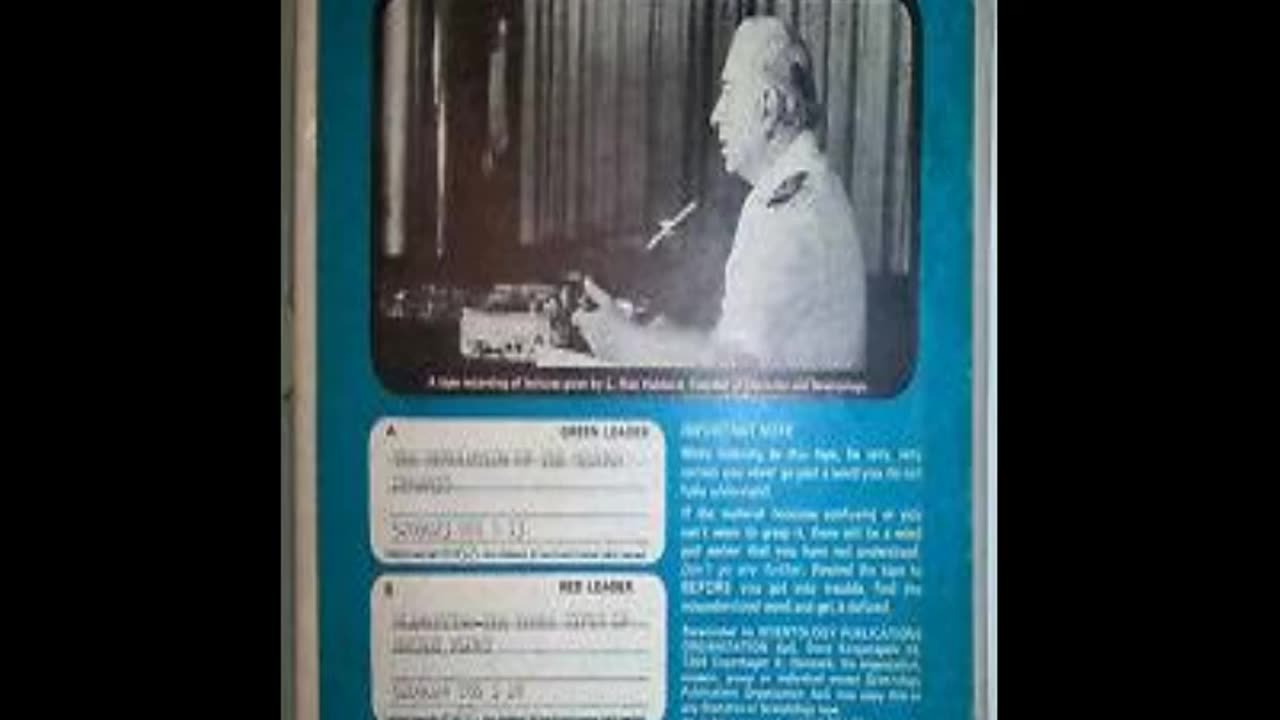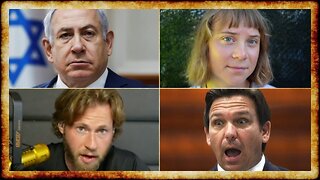Premium Only Content

Scientology and Effective Knowledge, July 15, 1957
Thematic Summary – Scientology and Effective Knowledge
L. Ron Hubbard – July 15, 1957
1. Definition and Purpose of Scientology
Core Concept: Scientology means “knowing” in the most complete sense, aiming at total knowledge.
Different from other disciplines: It is not comparable to psychology or other social sciences; it is a practical system for achieving freedom and real knowledge.
Comparable Historical Background: Buddhism (625 BC), for its goal of liberation and self-knowledge.
“The only way to improve man is to improve him… You cannot improve man by making him worse.”
2. Criticism of the Humanities and Psychology
Failure of the Humanities: Psychology, sociology, and the social sciences constantly changed without producing stable results.
Underlying Goal of Control: According to Hubbard, they were used as mechanisms for subjugation, not liberation.
Principle of Change: It is harder to demote a person than to elevate them, because in improvement, the person cooperates.
"It is rather easy to elevate them, because you have their cooperation."
3. Simplicity vs. Complexity
Simplicity as a Key: A clear and simple idea produces real benefits.
Complexity as a Trap: Complicated structures plunge people into "priesthoods" and mysteries.
Nomenclature in Scientology: A tool for communicating precisely, not for isolating or confusing.
"Greater simplicity, greater communication."
4. Real Knowledge vs. Invented Knowledge
Blindness and Pseudo-Knowledge: The worst state isn't not seeing, but believing you see something that doesn't exist.
Land of Wonders: A metaphor for invented ideas that replace direct observation.
Clinical Example: People who memorize technical terms (such as medical diagnoses) without actually observing present reality.
“The truth is something simple that anyone could see… Why don't they see it? Because they live in this wonderful fantasy land.”
5. Organization and Communication
Organization as an Agreement: It is not an autonomous entity but a set of individuals communicating.
Danger of Centralization: When everything depends on a single person (e.g., Mussolini), the structure collapses if that person is missing.
Function of the Organization: It is only valuable to the extent that it facilitates communication and observation.
“The organization, not being there at all, must be totally blind.”
6. Conclusion and Final Message
The Way Up: Only the simplicity of observation and communication can take man “from the bottom to the top.”
The Goal of Training: It is not to impose data, but to teach you to look and observe for yourself.
“And all I'm trying to teach you is: look.”
-
 LIVE
LIVE
Right Side Broadcasting Network
6 hours agoLIVE: President Trump Makes an Announcement - 9/2/25
35,731 watching -
 LIVE
LIVE
vivafrei
1 hour agoTrans Violence Canadian Media is IGNORING! Activist Judge vs. Trump AGAIN! Ostrche Update & MORE!
848 watching -
 LIVE
LIVE
The Quartering
1 hour agoAlex Jones Goes To WAR With Owen Shroyer, Are All Women Terrible?, Woke Backfire Of The Year!
10,961 watching -
 LIVE
LIVE
Awaken With JP
1 hour agoTrans Shooter is the Victim, Vaccines in Trouble, and Greta is Ugly - LIES Ep 106
725 watching -
 LIVE
LIVE
The White House
5 hours agoPresident Trump Makes an Announcement, Sep. 2, 2025
1,638 watching -
 LIVE
LIVE
MattMorseTV
2 hours ago $2.68 earned🔴Trump's Oval Office BOMBSHELL.🔴
1,520 watching -
 18:14
18:14
Real Estate
14 hours agoRising Prices PUSHING AMERICANS OVER THE EDGE
36 -
 1:43:35
1:43:35
Russell Brand
2 hours agoTrump Demands Big Pharma PROVE Covid Vaccine Is Safe – Did Pfizer LIE?! - SF626
106K25 -
 LIVE
LIVE
Due Dissidence
3 hours agoIsrael THREATENS Greta, InfoWars Host QUITS, FL Losing $200M on EMPTYING Alligator Alcatraz
734 watching -

Law&Crime
6 hours ago $0.41 earnedLIVE: Adelson Matriarch Murder Trial — FL v. Donna Adelson — Day 6
2.98K